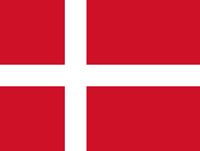
The Organic Council (Det Økologiske Råd - DØR) has initiated a project on waste prevention through promotion of repairs. International Waste News from Denmark reports (No. 3, June 2006) that the project will among other investigate whether local repair shops can be established in two locations in Copenhagen. The project will be carried out in cooperation between two agenda centres:
• Agenda centre SundbyØster
• Bispebjerg Environmental Centre.
The starting point of the project is the
increasing waste amounts.
Although amounts of waste for landfilling have been reduced,
it has not been possible to stop the increase in waste amounts. The project shall test two product groups - electronics and furniture. These have been selected because there is a potential for increased repairs, since a lot is scrapped today when people see no benefit in repairing things. On the other hand there exists a relatively well functioning network of repairmen of e.g. bicycles, cars and white goods. For furniture and electronics with a new price above app. 2000 DKK it must also be assumed that it would be repaired if the item is not totally written-off or outdated. With white goods it must also be taken into consideration that older machines should rather be written-off than repaired, because their power consumption is too high and they may contain CFCs.
Existing internet guides
Already today there exists the site
www.repairationsguiden.dk, operated by the Environment and Energy Centre in HØje Tåstrup but which covers the whole country. It is sponsored by several municipalities, including Copenhagen. This site is recommended because it gives an overview of existing groups of goods and municipalities and the connecting repair shops. However it does have shortcomings. One of the barriers of repairs is that most repairmen operate with a starting fee. For electronics it is often e.g. 800 DKK to even examine the problem. Therefore most people will abstain from this solution unless the new price is well over 1000 DKK. The problem is connected to the fact that mostly the retail shop receives the broken electronic item from the customer but do not carry out the repairs themselves. They send the goods somewhere else and hereby the bear considerable costs before even starting to do any repair work. The guide gives the impression that there are already quite a few repairmen in Copenhagen municipality but also that there are areas with very few of them. In terms of furniture repairs there are several in the municipality but must of them do upholstering and do not repair antique furniture.
Only few can do joinery and are able to repair e.g. broken chairs and tables. Extended warranty Another way of securing goods for longer time is to extend the warranty period. This exists today for instance in the radio and television sector, for MP3 recorders etc. where it is possible to get a four year warranty by paying extra. But the Consumer Council is sceptical of these arrangements because there are cases where retailers have not respected these warranties. The project will review whether it is possible to improve these warranty arrangements. The project is implemented in the period 15 May - 31 December 2006
From RRF news
Technorati Tags:
ander waste minimisation waste prevention reuse denmark repairs www.wasteminimisation.com
 Japanese Mos Food Services, Inc., owner of the Japanese Mos Burger chain, has announced it will stop using plastic takeout bags and introduce transparent corn-based takeout drink cups at all stores in July.
Japanese Mos Food Services, Inc., owner of the Japanese Mos Burger chain, has announced it will stop using plastic takeout bags and introduce transparent corn-based takeout drink cups at all stores in July.